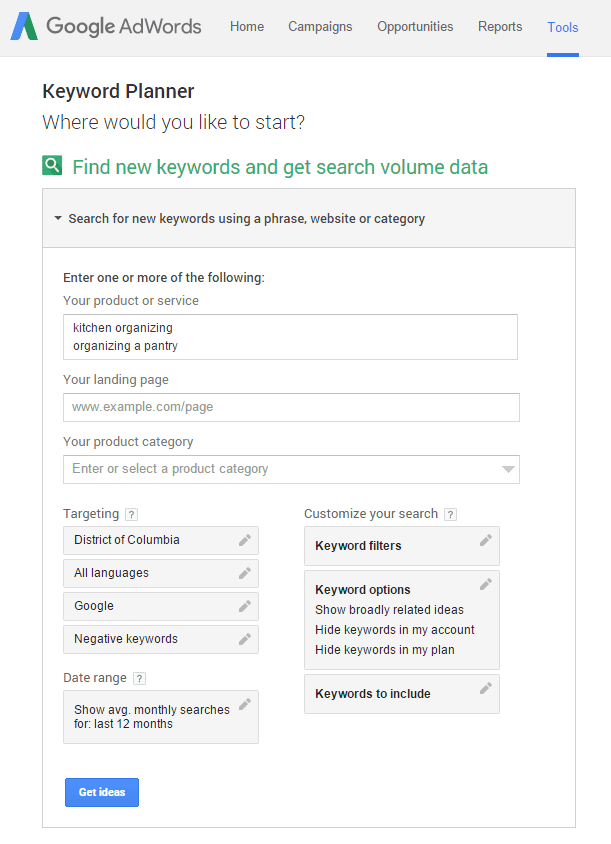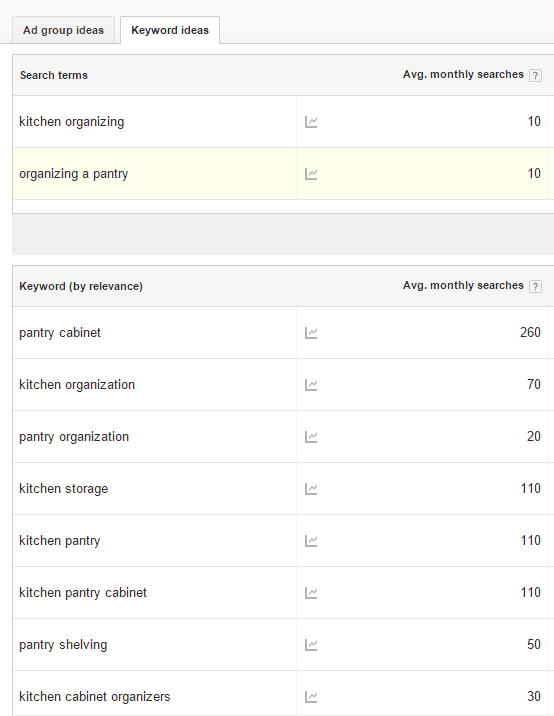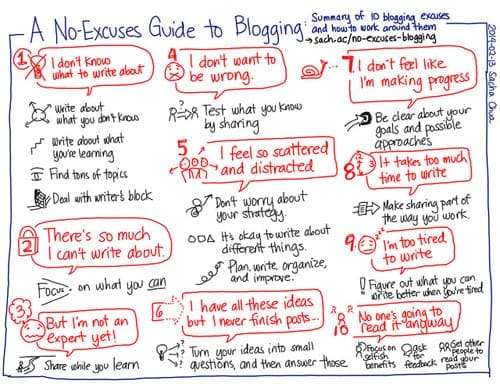How to research the best topics for your blog
This page may contain links to Amazon.com or other sites from which I may receive commission on purchases you make after clicking on such links. Read my full Disclosure Policy

If you enjoy blogging, you probably have no shortage of ideas for topics to blog about. Unfortunately, no matter how creative you are, if your posts aren’t relevant to your target audience, you’re not likely to reap any benefits from your efforts.
To provide the information your readers are looking for, you need to identify problems they’re facing that you can help them solve. This important step of the blogging process is frequently overlooked.
Check Your Analytics
If you’ve set up Google Search Console, you can see the terms people have searched on to land on your site. Any one of those could be a good topic for a future blog post. Although you’ve probably already covered some of them, this can indicate which ones may be worth covering again in more depth or from a different angle.
You can also access this information if you have the Jetpack plugin. The statistics module will show you the top search terms from the past week, month, quarter, year, or all time.
Unfortunately, Jetpack and Google Search Console can only supply information going forward from the time you set them up, but if your hosting service uses cPanel, you probably have access to a lot of data that you didn’t even know about, through a program called AWStats.
These tools tell you about people who have already been to your website, but it’s even more important to attract the ones who haven’t discovered your blog yet. Let’s look at some of the ways you can do that.
Question & Answer Websites
Sites like Quora and Reddit were created so that users can post questions and other users can answer them. Finding out what questions people are asking can be a valuable exercise in brainstorming topics.

There are lots of other resources as well. You’re probably already using some of them.
Other Resources
Think about:
- problems you’ve solved in the past, either for yourself or a client
- questions that people ask you when they email you about your business or when you meet with them
- questions people ask you when you’re giving a presentation or a seminar
There are all kinds of online discussion forums for different personal and professional interest groups. Find some that are relevant to your niche and explore questions that have come up there.
See what people are talking about on social media. Try searching on a few relevant keywords and see what comes up.
You can also look at major publications, like Real Simple, to see what they’re writing about. They have big budgets for market research, so they’re not going to invest resources into developing content unless they’ve determined that there’s a demand for it.
Testing Your Ideas
Once you’ve generated a list of possible blog topics, you need to conduct further research to find out which ones will be most helpful to your target audience.
If you have a topic in mind and you want to know whether people will find it interesting, try the Andrew Chen Technique. This involves posting an insight, idea or quote on Twitter or another social network to see what kind of response you get. If it doesn’t attract much attention, it’s probably not worth blogging about. If it does, it probably is. And if it generates a lot of questions or comments, you might even be able to incorporate some of those ideas into your post.
For more in-depth research, you can use the Google AdWords Keyword Planner. Here’s how:
- Sign up for Google AdWords or log into your existing account.
- Enter your topic ideas in the search box, one on each line.
- If you’re focusing on your local market, go to the Targeting section, select your city or region, and save it. You can skip this step if you sell products online or offer services virtually.
- Click on Get ideas.

On the next screen, click on the Keyword ideas tab.
At the top, you’ll see the average number of searches per month for each of your search terms in the target area that you selected. Appearing below that is a list of related keywords along with their search data.

You can use this information to determine which phrases are entered most often. In the above example, we can see that “pantry cabinet” is the most popular phrase, so this would be a good topic to focus on in your blog post.
Leave a comment: How do you decide what topics to cover on your blog?
Image © mmaxer / Depositphotos




This is a very helpful post. You gave me a few ideas I didn’t think about. I like using Google Adwords to help create a title for the blog. It gives me inspiration. Thanks for sharing.
Great minds think alike!
I find I get most of my ideas from working with clients. I see a situation or a struggle and it sparks an idea. I also like to toss in a variety of humor, instruction, and reflection. Very helpful advice as always, Janet!
Many of my posts are also inspired by conversations with or emails from clients too. Those usually turn out to be the best ones!
Thank you for the detailed tips on ways to research blog topics. I will definitely use some of these methods when writing upcoming blog posts.
Funny thing… this one actually came from an email I received recently from someone who heard me speak on the topic. I figured if she wanted to know more, others probably did too.
So glad to see how to maximize our efforts! Thanks for sharing!
Thanks for stopping by, Ellen! Always good to see your smiling face. 🙂
Quota is a new one for me…I need to go check that out! Similar to your suggestion about seeing what flies in the Twittersphere, I gather intel from looking at the click rates on various links/images on the newsletters I send out to keep my finger on the pulse of what my readers find most interesting
Excellent strategy, Natalie!
Here’s one of my older posts, if you’d like to learn more about Quora: https://yourorganizingbusiness.com/ask-or-answer-questions-and-grow-your-network/
Great information Janet! I used to use keywords more , Google Alerts and Google Trends, but now I just have a big master list of ideas I pull out if I don’t have a topic in mind. I like Seana use experiences from clients as well. Thanks for explaining this is an easy manner! I’ll be sharing this with my blogging group.
The world is definitely full of blogging ideas, but these tools can be helpful if you need to narrow them down. Thanks for sharing with your group – I really appreciate it!
Nice article. I just want to add ehow.com, storify.com and boredpanda.com as idea generating sources.
Thanks, Tina! So many websites, so little time… 🙂